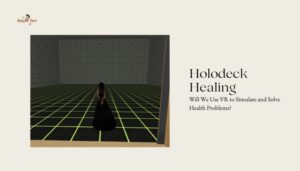Pain Relief without Opioids: Emerging Alternatives for Chronic Pain
Introduction Opioids have long been central to chronic pain management. Yet concerns over addiction, tolerance, and severe side effects drive the search for safer, equally effective options. Meanwhile, patients with persistent discomfort—whether from back injuries, nerve damage, arthritis, or fibromyalgia—need...
Read MoreContraceptive of the Future: New Methods for Men and Women on the Horizon
Introduction Birth control has come a long way since the pill’s debut, with modern implants, IUDs, and injections expanding people’s options. Yet the quest for better contraceptives—more effective, with fewer side effects—continues. Researchers worldwide are developing new methods , from...
Read MoreFertility Breakthroughs: Lab-Grown Egg and Sperm for Infertility Solutions
Introduction For some couples, traditional infertility treatments—ranging from hormone therapy to in vitro fertilization (IVF)—still fall short, leaving adoption or donor gametes as the remaining options. Enter lab-grown eggs and sperm, a cutting-edge field exploring how to create functional human...
Read MoreArtificial Wombs: The Future of Saving Premature Babies and Beyond
Introduction When extremely premature infants are born, their underdeveloped organs struggle to survive in the external environment. Enter artificial wombs, sometimes called “bio-bags,” which aim to support these fragile neonates in a womb-like setup—providing amniotic fluid, controlled gas exchange, and...
Read MoreImmunotherapy 2.0: Next Advances After CAR-T for Cancer
Introduction In the battle against cancer, CAR-T cell therapy emerged as a major breakthrough—engineering a patient’s own T cells to hunt and kill tumors with high specificity. But CAR-T is only one piece of the broader immunotherapy revolution. Researchers now...
Read MoreTricorder Devices: Handheld All-in-One Scanners Coming to Real Life?
Introduction Fans of Star Trek’s futuristic “tricorder” recall a small handheld scanner that provided immediate, detailed medical diagnostics on the spot. Decades later, engineers, medical device makers, and AI developers are racing to create real-life equivalents—compact gadgets that measure vital...
Read MoreHolodeck Healing: Will We Use VR to Simulate and Solve Health Problems?
Introduction From Star Trek’s "holodeck" to the latest consumer VR headsets, immersive digital environments have captured imaginations for decades . But virtual reality (VR) isn’t just for gaming or entertainment—it’s already making waves in medicine. By letting doctors and patients...
Read MoreThe End of Medical School? AI and Simulation Training Future Doctors
Introduction From stethoscopes to scalpels, the tools of medicine have evolved, but the core of medical training—long years of lectures, rotations, and hands-on patient care—has remained more or less the same for generations. However, AI and advanced simulation may soon...
Read MoreHospitals of the Future: High-Tech, AI-Driven and Home-Based Care
Introduction Hospitals have always been cornerstones of modern healthcare. But as medical technology rapidly advances and patient preferences evolve , the hospital of the future is poised to look radically different. From AI-assisted diagnoses and wearable sensors tracking vitals in...
Read MoreVirtual Organs (Digital Twins): Simulating Your Body to Test Treatments
Introduction Imagine physicians running “trial treatments” on a virtual clone of your organ, predicting if a medication, surgery, or device will work best—before ever applying it to you. This concept of virtual organs, also known as digital twins, harnesses computational...
Read More









